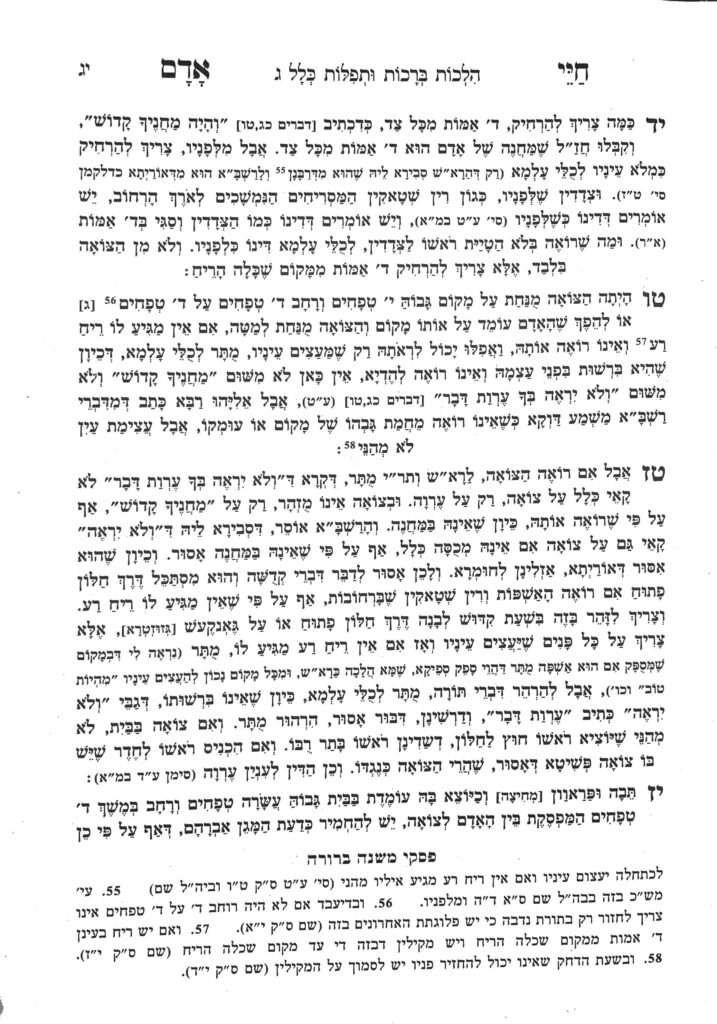We are beginning siman 16. We learned that when tzoah is in a different reshus, it is muttar to recite devarim shebikedusha, provided one cannot see or smell the tzoah. We also learned that it is a machlokes whether the tzoah must be blocked, or whether it is sufficient to close one’s eyes.
The Chayei Adam clarifies that, according to the Rosh, the issur of velo yireh becha ervas davar only applies to ervah, and not to tzoah. The only issur which applies to tzoah is vehaya machanecha kadosh. Therefore, in our scenario, where the tzoah is not in the same machaneh (because it is in a different reshus), it is completely muttar to see the tzoah.
However, according to the Rashba, the issur of velo yireh becha ervas davar also applies to tzoah, not just ervah. Therefore, even if the tzoah is not in the same machaneh, it is assur. (See more about the machlokes Rosh and Rashba in shiur 1511.)
The Chayei Adam concludes that since this is a question of an issur deoraysa, one must be machmir and follow the opinion of the Rashba. Therefore, one cannot recite devarim shebikedusha if there is tzoah in their eyesight. For example, the Chayei Adam writes that one must be careful that an ashpah cannot be seen through the window when reciting kiddush levana from indoors, or when learning on a porch.
Nevertheless, the Chayei Adam reiterates that if one has no choice, they can simply close their eyes.
The Chayei Adam continues, and adds that all opinions agree that hirhur is muttar in these situations. He explains that since the pasuk says velo yireh becha ervas davar, Chazal understand that the issur is only dibbur.
One application of this point is that in a scenario where one is sitting in a car and thinking in Torah, if they see tzoah on the road, they do not have to stop their thoughts. We will discuss listening to Torah in the upcoming shiur, be’ezras Hashem.
Summary
- If tzoah is in a different reshus, even if that different reshus is within four amos of a person, the tzoah is not a problem, provided they cannot see or smell it.
- There is a machlokes whether one can avoid seeing tzoah by simply shutting their eyes. Lechatchila one should not rely on shutting their eyes, but if they have no choice, and are unable to turn their body or head, they may rely on it.
- Nevertheless, hirhur is muttar even when one cannot avoid seeing the tzoah.



